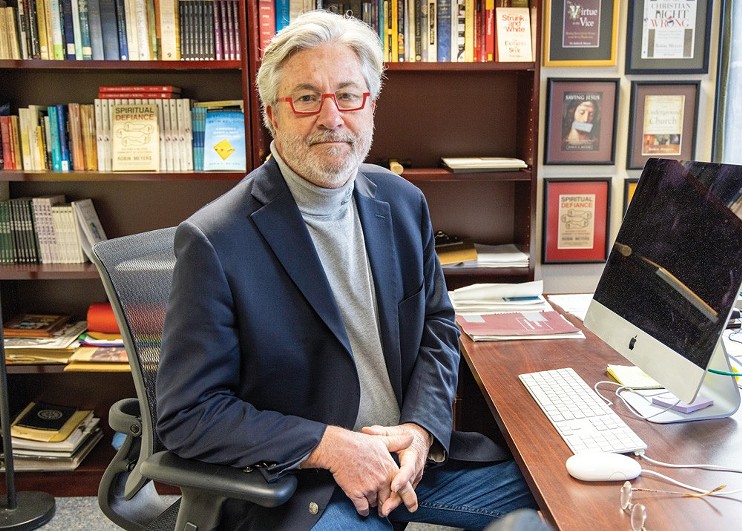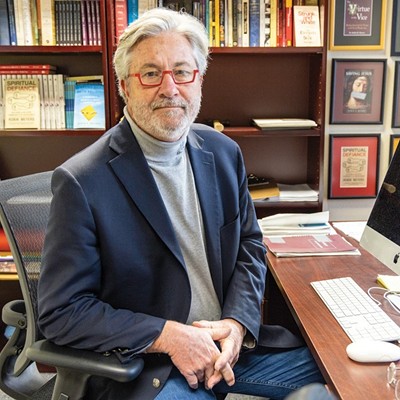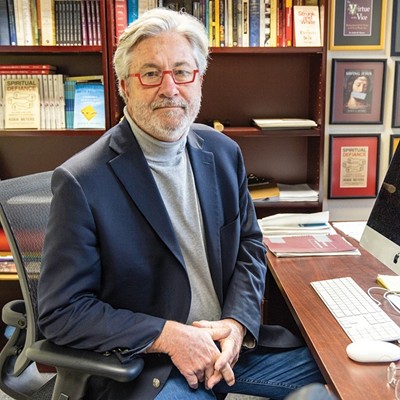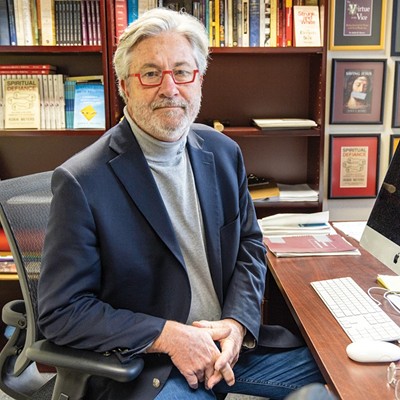I have spent my life working on the inside of organized religion, even though my love/hate relationship with most God-talkers makes me an outsider. A quick reminder for those who still go to church: Jesus was permanently — and lethally — on the outside of the religion of his time, and his denunciations of its hypocrisy and misplaced fervor was legendary. “Hypocrites,” (mask-wearing actors) and a “brood of vipers” comes to mind. Then of course there was the company he kept, which more than anything he said or did led Rome to execute him.
Evangelicals who favor capital punishment need to remember that Jesus was a victim of it.
Recently I read about the pastor of a Catholic church in Phoenix who changed one word in his baptismal liturgy and has apparently endangered the mortal souls of everyone he baptized for 20 years. All that time he was saying, “We baptize you in the name of the Father and of the Son and of the Holy Spirit.” The official version should be “I” baptize you, not “we.” One word was officially incorrect, and the Vatican said that every child over which this priest had poured water for two decades was not properly baptized. It was an invalid sacrament, they said, and even though many of those affected are now adults, they will need to be baptized again — so that God can hear the word “I” instead of the word “we”? Reminds me of the shortest scripture in the Bible. “Jesus wept.”
There is more at work here than a mere slip of the tongue. “I” means the priest, who stands in for the Catholic Church. “We” means the community, and that is, how shall we say it, far too Protestant. Now the members of his parish wonder if the marriages he has performed are also illegitimate. The priest has since resigned, expressing his deep regret over the error and its effect on numerous people in his care. No wonder there is a shortage of priests.
Officials from the Diocese of Phoenix reminded critics that what may seem trivial and legalistic is really a matter of salvation. Just as someone can’t use milk instead of wine for communion (because how can milk turn into the blood of Christ?), no priest can alter the words of baptism by saying “we” instead of “I.” Such a mistake, they said, “would not purify a person.” Now there’s a strange idea, that the right words, not the right intentions or the right actions, is what “purifies” a person.
Might it rather be the case that faith is supposed to transform a person, not “purify” them? For centuries after St. Augustine invented the doctrine of Original Sin, countless humans were taught that they were born little sinners and had to be rescued (aka purified). Our “sin” had been passed down by the mythical couple Adam and Eve, whose imaginary transgressions instigated by a talking snake in the Garden of Eden was now humanities’ birthright, like being born red haired or left-handed. While it is abundantly clear that people sin, is it because they can’t help themselves?
Do you see how much power this gives the church? It creates a universal disease for which it alone has the cure. This would be the ultimate spiritual franchise. Likewise, the doctrine that salvation only comes through confessing the right beliefs about Jesus. Where does that leave the 9-year-old Hindu girl who has never heard of Jesus? And the doctrine that the bread and wine becomes the body and blood of Christ means you cannot just take the leftover communion elements to the trash. You can’t pour the blood of Christ down the sink, but instead whatever remains must be consumed by the priest — a contributing factor to alcoholism.
Then there is “limbo”— a place created by the church to “hold” unbaptized babies who had died, and other special cases like the gazillions of people who died before Christ was born. Do those unbaptized through no fault of their own go straight to hell? When it became clear that this portrayed God as legalistic and harsh, the concept of limbo, taught to Catholics for centuries, was eliminated by a stroke of the Pope’s pen in 1992. My Catholic friends rightly wanted to know, “So where did all the souls in limbo go after it was eliminated?”
The great failure of organized religion is that the love of power replaces the power of love. When this disconnect becomes painfully obvious to young people, the pews empty out and the world wrings its hands and wonders why churches are dying. The real answer is that they deserve to be dead. Perhaps someday, real Beloved Communities will rise in their place.
The Rev. Dr. Robin Meyers is pastor of First Congregational Church UCC in Norman and retired senior minister of Mayflower Congregational UCC in Oklahoma City. He is currently Professor of Public Speaking, and Distinguished Professor of Social Justice Emeritus in the Philosophy Department at Oklahoma City University, and the author of eight books on religion and American culture, the most recent of which is, Saving God from Religion: A Minister’s Search for Faith in a Skeptical Age.
Visit robinmeyers.com












